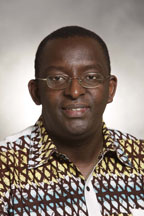

Les collections éditoriales





Jean-pierre Karegeye
Directeur de la collection
Doctorat en Litterature Francaise
Directeur de l'organisation IGSC
Collection Témoignages et idées
Genre: Littérature de témoignage (génocide, crimes contre l'humanité, ou tout crime de masse, guerre, tortures, catastrophes naturelles, maladies, etc.).
La collection « Témoignages et Idées » se donne pour mission, d’une part, de porter témoignage aux violences qui frappent l’Afrique et le monde à travers la voix des victimes; et d’autre part, elle encourage des études rigoureuses sur le génocide, les crimes contre l’humanité, les conflits armés par une approche pluridisciplinaire afin de comprendre les divers mécanismes sous-tendant les structures de la violence de masse dans le but de la prévenir. La collection accueille les récits des survivants ou d'un tiers témoin, les oeuvres de fiction, des essais relatifs, entre autres, aux analyses des récits, au cadre théorique du témoignage, aux réflexions sur le témoignage à partir d'une ou plusieurs disciplines, etc.
A propos de Jean-pierre Karegeye [Anglais]
Karegeye's areas of research and teaching are mostly based on African Francophone Literature and Genocide Studies, especially Rwandan Genocide. He is particularly interested in the growing body of African Francophone literary texts and other artistic works in dialogue with other disciplines. His work on Genocide Studies focuses on testimony and explores both fictional and non-fictional
narratives. Educated in various disciplines such as African Linguistics, philosophy, and Social Ethics (BA in French-African Linguisitics, BA in Philosophy, MA in French, MA in social Ethics, Phd in French Literature), some of his current projects explore how genocide and mass violence in Africa imply a reconstruction and/or a relocation of social sciences and humanities.
Karegeye has published several works including two edited books, with articles from Todorov and major African writers, numerous chapters in books and more than 30 articles published in international journals. His recent article “Rwanda. Littérature post-génocide, écritures itinérantes: témoignage ou engagement?” has been published this Fall by the International Journal of Semiotics “Protée”.
Another important element of his academic life has been his involvement, as director, with the Interdisciplinary Genocide Studies Center (IGSC, www.igscrwanda.net), an international scholarly association composed of 35 scholars from European, North American and African
universities and academic institutions. Its mission is to encourage the study of genocide through rigorous cross-disciplinary analyses, to organize and host conferences, colloquia and symposia, study Abroad groups and to promote affiliations and collaboration with academic institutions and professional associations, domestically and internationally.
